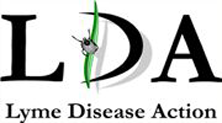Swedish Patients’ experiences: a BMJ open access paper has just been published.
Wessel M, Lynøe N, Juth N, et al. The tip of an iceberg? A cross-sectional study of the general public’s experiences of reporting healthcare complaints in Stockholm, Sweden. BMJ Open 2012;2:e000489. doi:10.1136/ bmjopen-2011-000489
Sweden has a Patients’ Advisory Committee, similar in function to the UK PALS (Patient Advice and Liaison Service) and in Stockholm, as in the UK, the number of complaints is increasing. The study sample was small, and the results may not be generalizable to other countries, however, this paper states what is probably a universal finding –
“The general aim of authorities’ administration of complaints is to improve patient safety and efficiency in healthcare. The patients’ motives for filing a complaint might, however, differ; they may also concern a wish for an explanation, someone to be accountable for what happened, financial compensation or receiving an apology.”
The study was designed
- to test the hypothesis that patients’ complaints about adverse events related to negative encounters in healthcare are under-reported
- to study the barriers to filing complaints
- to see whether the trust in and experience of healthcare are related.
Of the random sample of 1500 patients in Stockholm in 2008, 992 completed questionnaires were returned: 58% from women and 42% from men. Out of these:
- 23 (2.7%) had complained about the quality of their encounters
- 159 (18.5%) said they had legitimate reasons to complain, but had chosen not to.
Of those who had reasons to file a complaint but did not do so, one-third reported that they had low trust in healthcare. This can be compared with those who had no reason for filing a complaint; nine of the 10 had high trust in healthcare.
The top reasons for not filing a complaint were:
- I did not have the strength (39)
- I did not know where to turn (18)
- It makes no difference anyway (17)
- I had other priorities (14)
- It was too difficult (13)
- I was afraid of the consequences (8)
- I did not have time to do it (8)
- The damage was already done (5)
The authors conclude that in Stockholm healthcare complaints regarding encounters reveal only the tip of an iceberg and if trust in healthcare is jeopardised by negative encounters, it seems important also to examine more carefully the bottom of the iceberg, that is, to study those who do not file complaints.

 Printer Friendly
Printer Friendly